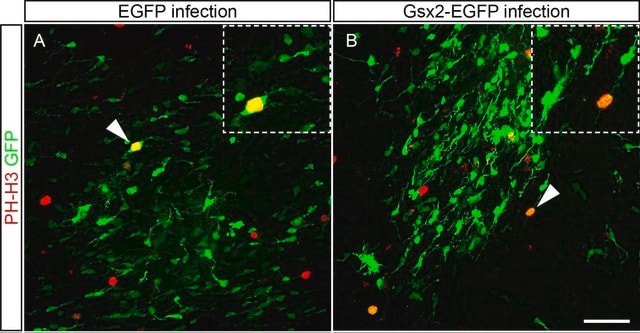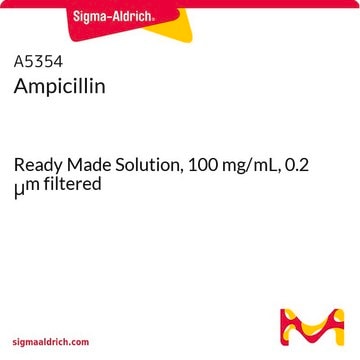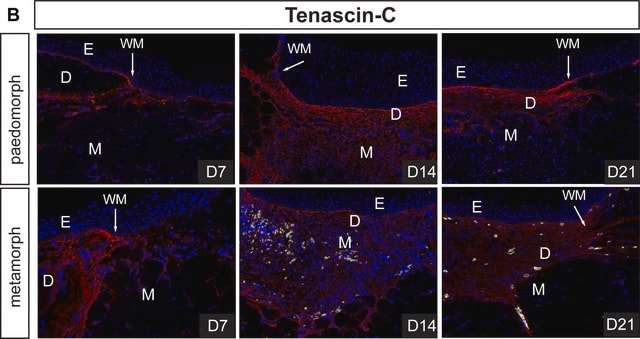MAB4381C3
Anti-TRA-1-81 Antibody, clone TRA-1-81, Cy3 conjugate
clone TRA-1-81, from mouse, CY3 conjugate
Sinonimo/i:
Podocalyxin, GCTM-2 antigen, Gp200, Podocalyxin-like protein 1
About This Item
Prodotti consigliati
Origine biologica
mouse
Livello qualitativo
Coniugato
CY3 conjugate
Forma dell’anticorpo
saturated ammonium sulfate (SAS) precipitated
Tipo di anticorpo
primary antibodies
Clone
TRA-1-81, monoclonal
Reattività contro le specie
human
tecniche
immunocytochemistry: suitable
Isotipo
IgM
N° accesso NCBI
N° accesso UniProt
Condizioni di spedizione
wet ice
modifica post-traduzionali bersaglio
unmodified
Informazioni sul gene
human ... PODXL(5420)
Descrizione generale
Specificità
Immunogeno
Applicazioni
Stem Cell Research
Pluripotent & Early Differentiation
Qualità
Immunocytochemsitry Analysis: A 1:100 dilution of this antibody detected TRA-1-81 in H9 human embryonic stem cells.
Descrizione del bersaglio
Stato fisico
Stoccaggio e stabilità
Risultati analitici
H9 human embryonic stem cells
Altre note
Esclusione di responsabilità
Not finding the right product?
Try our Motore di ricerca dei prodotti.
Codice della classe di stoccaggio
12 - Non Combustible Liquids
Classe di pericolosità dell'acqua (WGK)
WGK 2
Punto d’infiammabilità (°F)
Not applicable
Punto d’infiammabilità (°C)
Not applicable
Certificati d'analisi (COA)
Cerca il Certificati d'analisi (COA) digitando il numero di lotto/batch corrispondente. I numeri di lotto o di batch sono stampati sull'etichetta dei prodotti dopo la parola ‘Lotto’ o ‘Batch’.
Possiedi già questo prodotto?
I documenti relativi ai prodotti acquistati recentemente sono disponibili nell’Archivio dei documenti.
Il team dei nostri ricercatori vanta grande esperienza in tutte le aree della ricerca quali Life Science, scienza dei materiali, sintesi chimica, cromatografia, discipline analitiche, ecc..
Contatta l'Assistenza Tecnica.
![Anti-OCT-4 [POU5F1] Antibody, clone 7F9.2, Alexa Fluor™ 488 conjugate clone 7F9.2, from mouse, ALEXA FLUOR™ 488](/deepweb/assets/sigmaaldrich/product/images/405/633/324511fc-ecc5-4c49-9d9d-8cf25ab28d40/640/324511fc-ecc5-4c49-9d9d-8cf25ab28d40.jpg)






